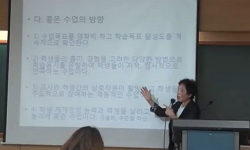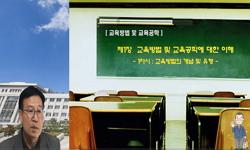Personalized instruction has taken on an increased importance in modern society that has not yet been reflected in actual substantive changes to our educational systems. Current information-age societies require critical thinkers and life-long learner...
http://chineseinput.net/에서 pinyin(병음)방식으로 중국어를 변환할 수 있습니다.
변환된 중국어를 복사하여 사용하시면 됩니다.
- 中文 을 입력하시려면 zhongwen을 입력하시고 space를누르시면됩니다.
- 北京 을 입력하시려면 beijing을 입력하시고 space를 누르시면 됩니다.
https://www.riss.kr/link?id=A106193417
- 저자
- 발행기관
- 학술지명
- 권호사항
-
발행연도
2017
-
작성언어
-
- 주제어
-
자료형태
학술저널
-
수록면
33-33(1쪽)
- 제공처
-
0
상세조회 -
0
다운로드
부가정보
다국어 초록 (Multilingual Abstract)
Personalized instruction has taken on an increased importance in modern society that has not yet been reflected in actual substantive changes to our educational systems. Current information-age societies require critical thinkers and life-long learners, educational outcomes less likely to be developed in a time-based system and therefore requiring a system of education focused on student learning and mastery of skills and knowledge (McCombs & Whisler, 1997; Reigeluth & Watson, 2008). Such transformation of education requires personalization of instruction. This paper draws from the literature to define personalization and formulate an instructional theory and principles for the instructional design of personalized learning. The paper covers learning theory that forms the basis for personalized instruction as well as existing models in the literature. It then describes the values behind personalized instruction before identifying universal principles. These principles include personalized instructional goals, personalized task environment, personalized scaffolding of instruction, personalized assessment of performance and learning, and personalized reflection.
동일학술지(권/호) 다른 논문
-
Elucidating the effects of smart learning: a meta-analysis
- 한국교육공학회
- 최효선
- 2017
-
예비교사의 과제물 수행 현황 및 과제표절에 대한 인식 조사
- 한국교육공학회
- 강지혜
- 2017
-
새로운 IT 융합 기술 및 트렌드의 국내 교육현장 도입시기 및 교육적 활용방안에 대한 탐색적 연구
- 한국교육공학회
- 박태정
- 2017
-
인공지능에 대한 기술철학적 이해와 교육공학 - 교육공학에서 인공지능의 적용을 위한 시사점 탐색
- 한국교육공학회
- 설동준
- 2017




 KISS
KISS






